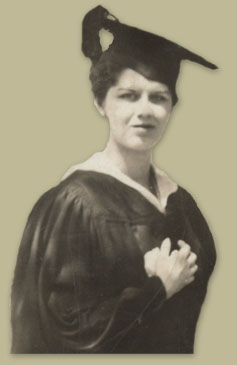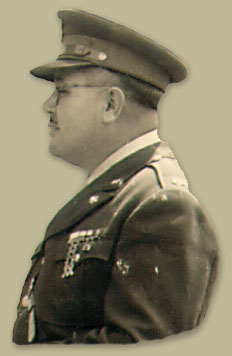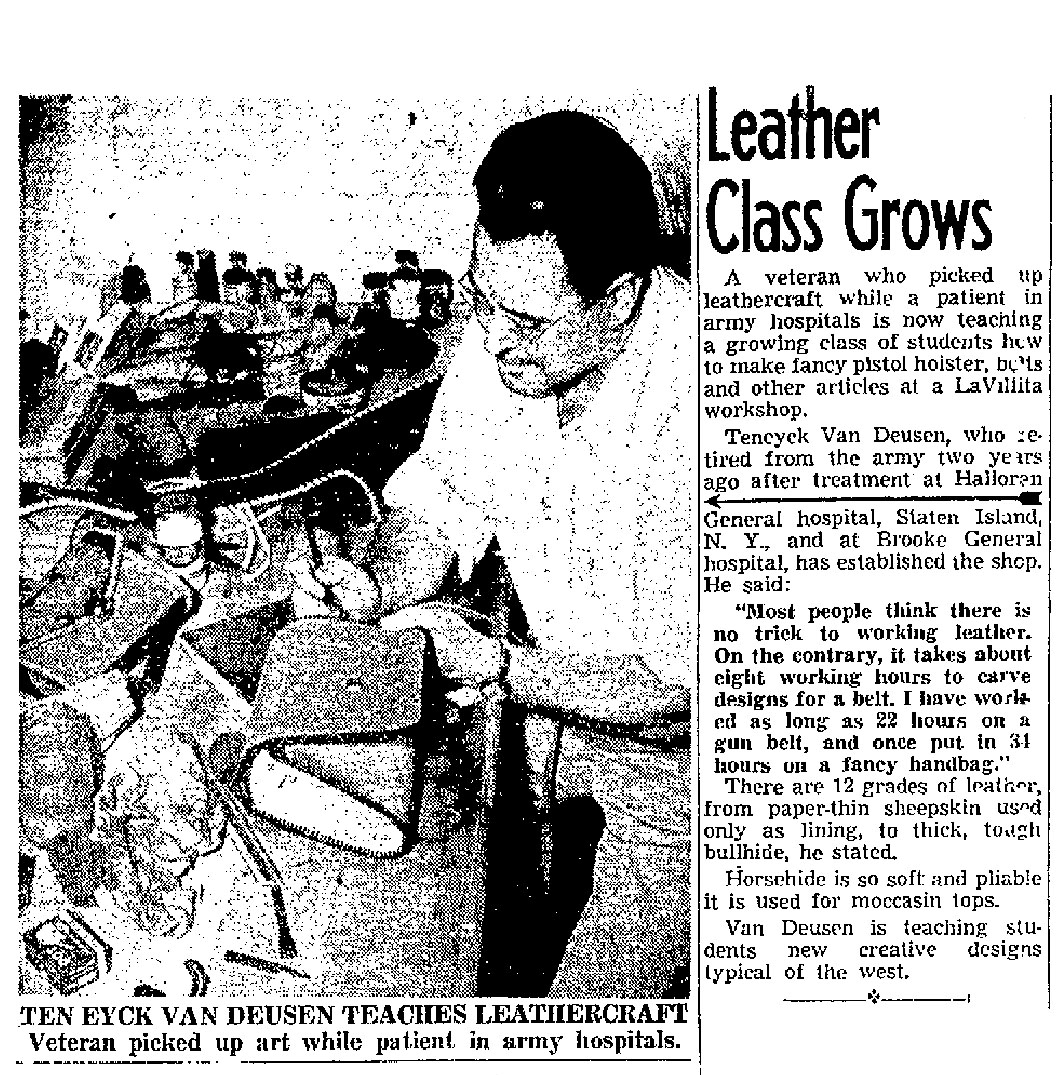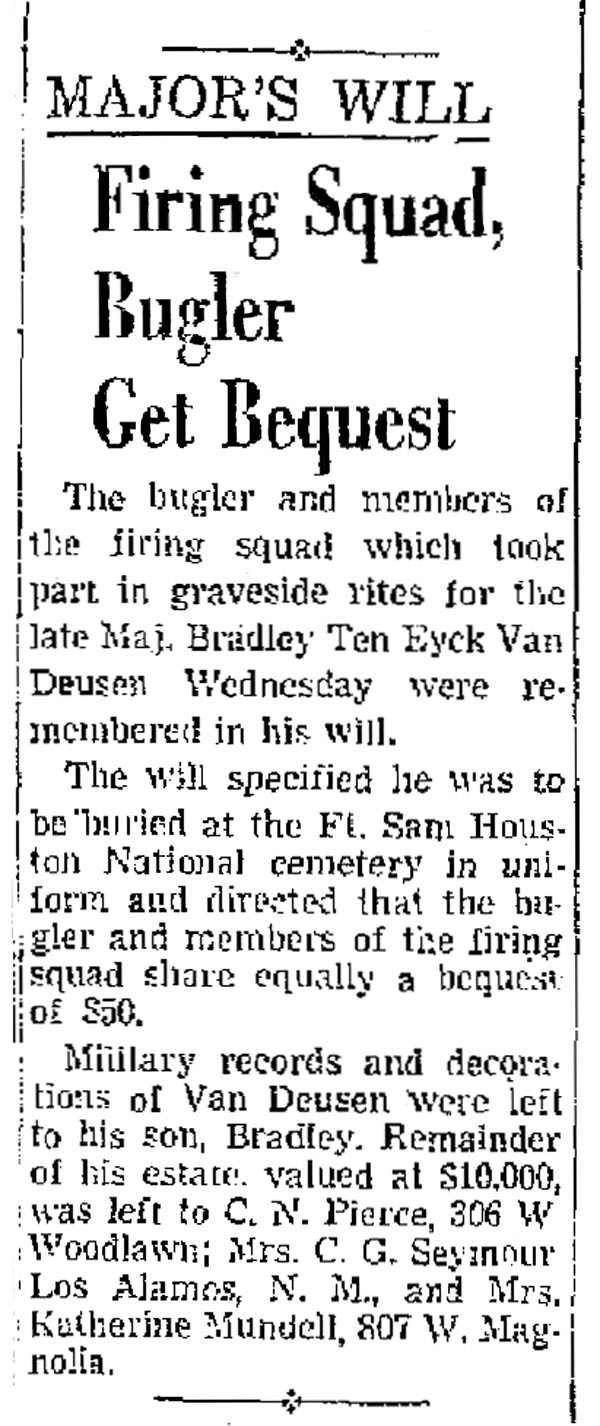




| Family | A U of Chicago Maroon Poetry Column |
| Growing Up a Bell and Van Deusen | The Blind Alley - A Biography |
| You're in the Army Now | Poetry Book - Old Soldiers' Drums |
|
The New York Years |
Jean's Poetry |
|
|
Major Bradley Evans Bell Van Deusen |
|
the University of Chicago The Daily Maroon 1828 | ||
|
| ||
|
October 18, 1828 | ||
|
|
|
November 7, 1928 | ||
|
|
November 23, 1928 | ||
|
The final word (once more) has been said on the subject of "Our Women." To those few to whom satirical comment is not completely unknown this poem has been affectionately dedicated. The results of the various diatribes are as usual, negative. Wherefore this poem so delightfully nil is distinctly apropos. The subject is closed.
BUT DISAPPOINT HER-- NEVER!
|
|
|
|
The Blind Alley by Louis H. Engel Daily Maroon - Jan 18, 1929 I've known a lot of funny guys in my time, but one of the queerest eggs that has ever annexed himself to this notorious aggregation known as The Daily Maroon staff can be seen on exhibition any afternoon after 4 on the home floor. He calls himself the Blind Tiger; others have called him many other things. He insists that his legal name is Ten Eyck Van Deusen, which you may or may not be able to swallow. Anyway, that's the monicker they have on the Military Department payroll, and under that title he draws sufficient filthy lucre to keep the walls of his stomach apart. Presumably he draws pay "for services rendered." Just what those services entail I have never been able to discover. His chief occupation seems to be sitting on his khaki and gazing at the eighteen inch roller on the M.S. typewriter. Only the good Lord knows where he came from or where he's likely to go. (The one question is as problematical as the other.) I don't know but what the Lord Himself may have lost track of this boy at some stage of the game, for from the stories he tells he's batted around all over Hell and gone. Occasionally I pick up a snatch of the travelogue. I've never been able to weave them into any kind of a consistent story. I might question the Tiger sometime, but I probably couldn't get any satisfaction out of him. You see, one of his most delightful characteristics is his inconsistency. There was one night when we went to the Hamburger joint down on the corner of 61st and Cottage Grove. We were down at the printer's working on the Christmas edition and along about 2 in the morning we felt the pangs of hunger and hied ourselves down to the aforementioned hole in the wall where we hopped up on the stools, like the little men we were, and ordered our scuttles of coffee. The Tiger was blue. Talked rather incoherently about lots of things. Something about being gassed in the war and spending a few months in a base hospital. Somewhere or other China rang into the story. It seems as though when the war ended he enlisted for the Phillipine service, and when he got through with that he went over and showed the Chinese rebels how to handle a rifle. That episode ended with an escape from beneath an executioner's axe -- a rather juicy detail. Someplace along the line England and the University of Illinois play a part. The Tiger's getting along in years, you see, but from the way he acts at times you might think he was a Freshman. That indictment, though might hold true of anyone over in our local menagerie. But back to the Tiger. (He sometimes travels under the name of the Stumble Bum, too.) He's been around. Ask him to tell you about any of the dives in Rangoon, Singapore, Shanghai, or some other romantic port. Of course, I can't check his stories, for I've never been east of Indiana or west of the Mississippi, but he tells them with such realistic touches that one can't help believing him. The Tiger is something more than an adventurer. He's an aesthete -- if you can imagine such a thing as an aesthetic ex-prize fighter. He claims intimacy with some of the literary lights of our American Bohemia and has written poetry himself. He's got a knapsack full of verse and pictures (You really out to see some of his photos. They've been snapped in every quarter of the globe and they include pictures of everything from the Hula queen to hizzoner himself in football togs.) You really ought to meet the Tiger. Come along some afternoon. We'll even oblige you with a respectable song or two, for the Tiger and I harmonize after a fashion when the rest of the inmates don't object too strenuously. "The Long, Long Trail" is our favorite, but we'll prepare other numbers on request. |
|
| |
|
|
|
| ||
|
| ||
|
| ||
|
| ||
|
| ||
|
| ||


|
Jean Audrey Butridge | |
|
|
|
December 6, 1928 | |
|
|
![]() Copyright © 2003, InterMedia Enterprises
Copyright © 2003, InterMedia Enterprises